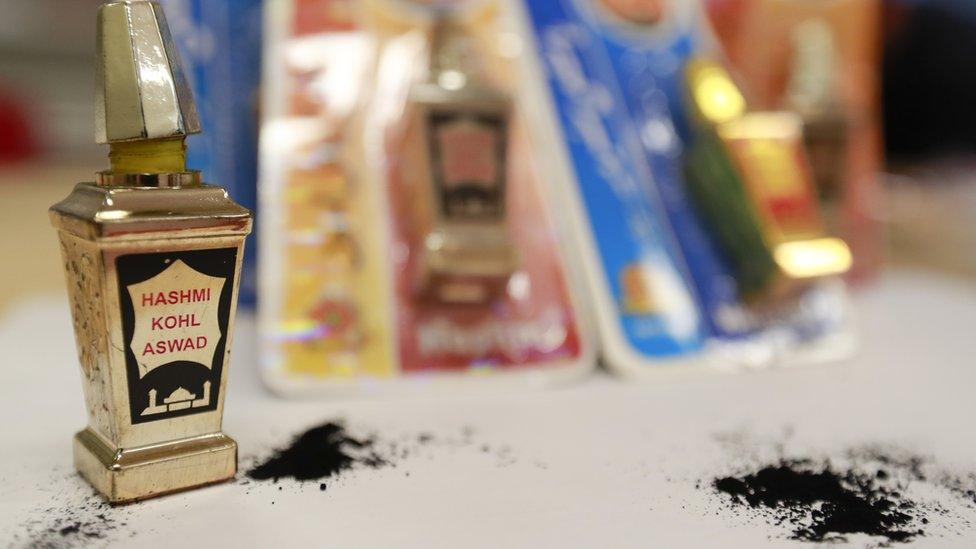Australia eyeliner warning over lead-poisoned children
- Published

Health authorities found high concentrations of lead in the eyeliner products
Three children in Australia are suspected to have fallen ill from using eyeliner contaminated with lead, authorities say.
The New South Wales state government issued a public health alert over the Pakistan-made Hashmi brand products.
The kohl cosmetics were found to contain 84% lead, as well as other dangerous metals.
The products were legally imported but contained dangerously misleading packaging, the government said.
Doctors had raised concerns when they found lead in the blood of the children, all of whom were related.
"An investigation indicated the health concerns were likely to have been caused by one of the Hashmi brand eyeliners," said Matt Kean, the state minister overseeing regulation.
Other nations have previously issued health warnings about Hashmi brand eyeliners. The products are banned for sale in the US.
'Disgraceful' packaging
The Hashmi Kohl Aswad and Hashmi Surmi Special cosmetics were sold in specialty shops that stock Indian and Pakistani goods in Sydney, authorities said.
"Some of the product packaging even specifically states that no lead is present, which is a total disgrace," Mr Kean said.
Australians have been advised to stop applying the products. The matter will be further examined by the Australian Border Force.
The Hashmi products were manufactured in Pakistan
Along with lead, the cosmetics also contained high levels of arsenic, cadmium, chromium and mercury, authorities said.
Even low levels of exposure to lead can have long-term health effects, such as brain and kidney damage.
Lead was used in make-up as far back as ancient times, including in kohl - a traditional eye cosmetic used in many parts of the world.
Companies in breach of mandatory health standards can face penalties of up to A$1.1m (£600,000; $800,000), the New South Wales government said.
- Published18 May 2015
- Published20 September 2013